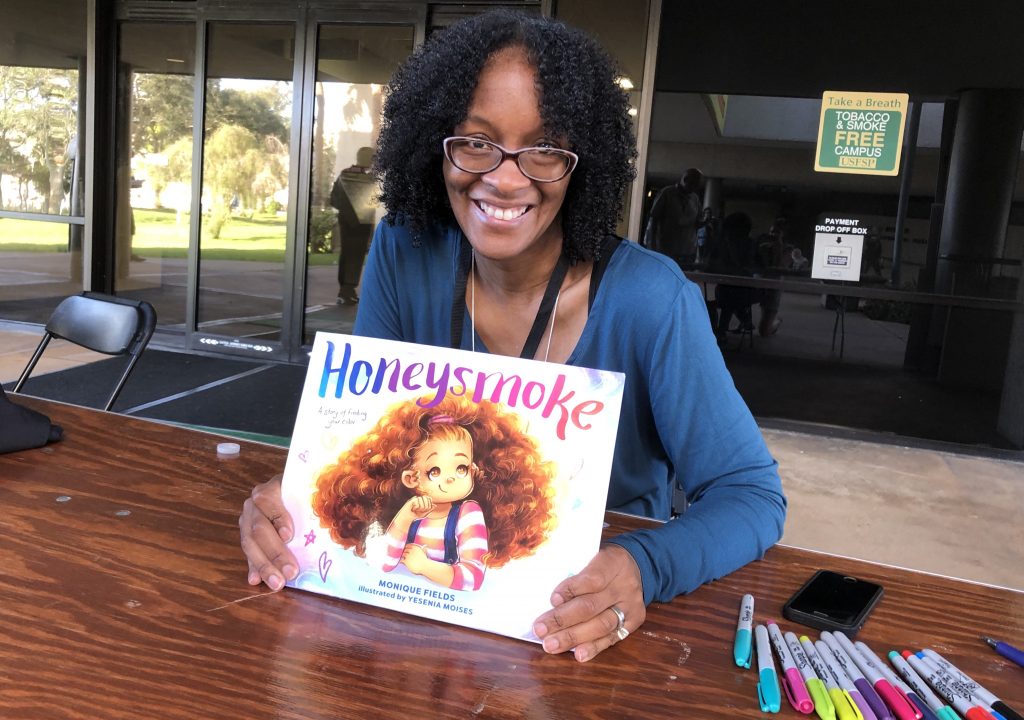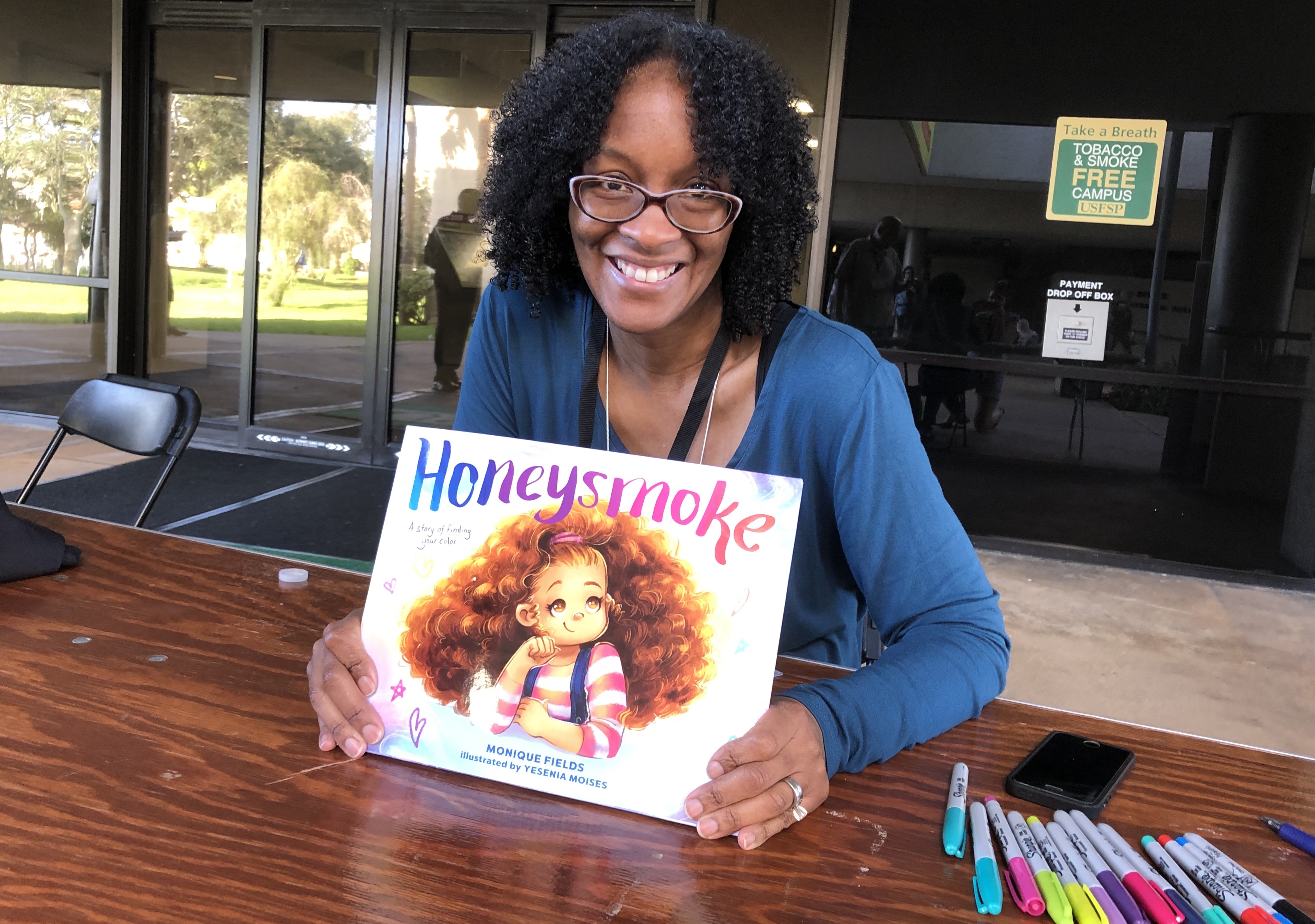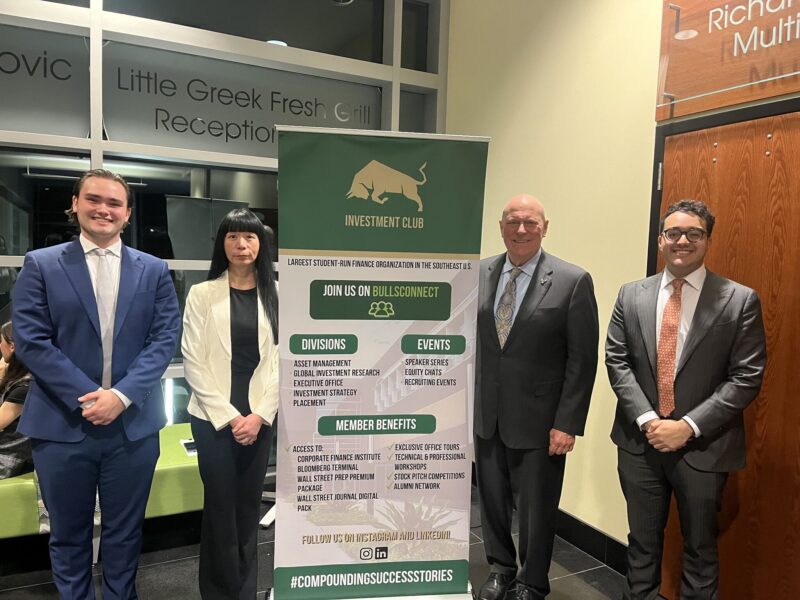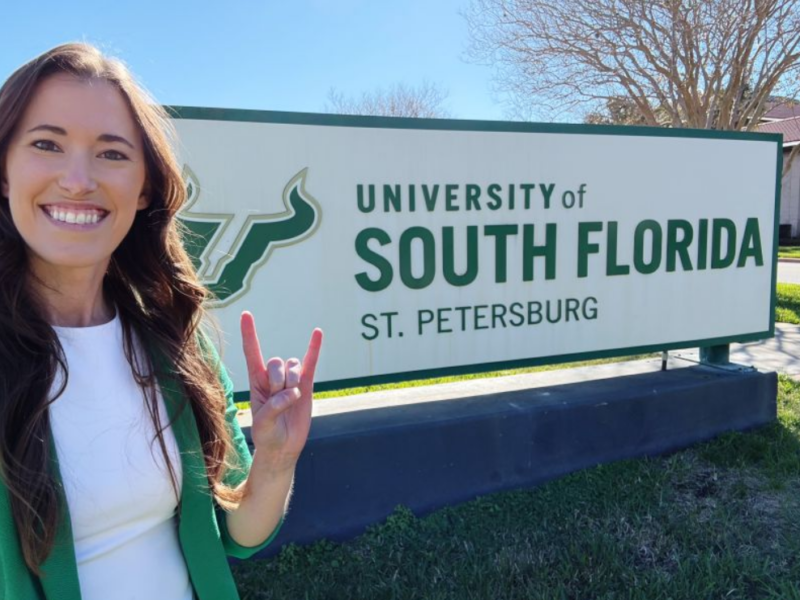
Courtney Amos | The Crow’s Nest
By Courtney Amos
Journalist and former professor Monique Fields had a simple reason for the significance of children’s books.
“Parents are their children’s first teacher,” she said.
A fitting point of view from Fields, who was a professor in the journalism department at USF St. Petersburg from 2005 to 2007.
On Saturday, Fields was one of roughly 50 authors who spoke at the annual Tampa Bay Times Festival of Reading to promote her new book.
Fields has published essays touching on race and identity for mediums including NPR’s “All Things Considered” and Ebony Magazine. But “Honeysmoke,” published in January, was her first book.
The book centers around the journey of a biracial girl searching to find answers to questions about her identity and ultimately concluding that though her mother is black, and her father is white, she is neither one – she is honeysmoke.
Biracial identities are an important topic that Fields says not enough books are written about, especially when it comes to children.
“There have been some,” said Fields, citing just a handful of examples dating as far back as the 1970s.
Still, she saw a need for more representation in children’s literature, so she took the task upon herself.
“There really wasn’t a whole bunch of books — or, not a modern book — about identity,” she said.
Though this statement may be true now, and was certainly even more so five years ago when Fields began writing the book, it seems that the tides are changing thanks to a wave of similar mindsets.
After all, Generation Z — the generation of Americans born after 1996 — is the most racially diverse set of Americans to date, according to the Pew Research Center.
This may explain why the emphasis on the importance of identity and representation has become increasingly prevalent in many forms of American media and pop culture.
The new “Little Mermaid” movie will feature a black Princess Ariel, the acclaimed “Black Panther” movie has been dubbed a milestone for superhero films, and “Blues Clues and You,” the reboot of the popular children’s show, will feature a Filipino-American host.
Judging by these recent trends, now is as fitting a time as ever for children’s literature to get the same revamp.
“My nephew is in a similar situation,” said Erica Dechene, who attended the event and expressed plans to give her signed copy of the book to him. “I just try to imagine him when he’s older trying to figure out what color he is.”
Fields said if it hadn’t been for her own children who are biracial, she probably never would have written such a book. It was through her own struggle to grapple with tough questions from her daughters that the inspiration for the book was born.



